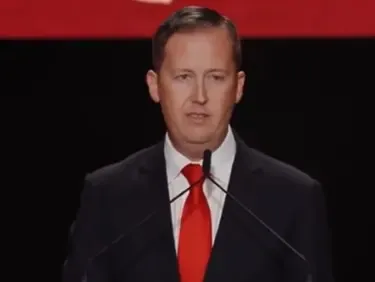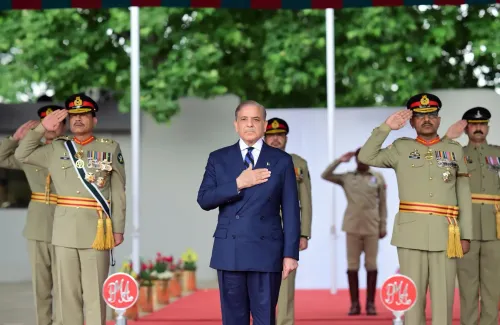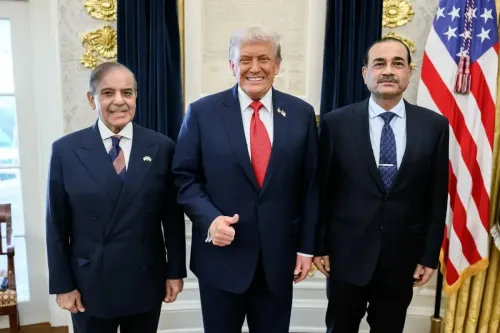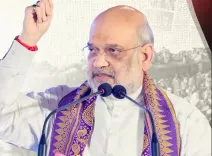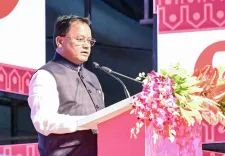South Korea: National Assembly Moves to Impeach Yoon Following Failed Martial Law Attempt
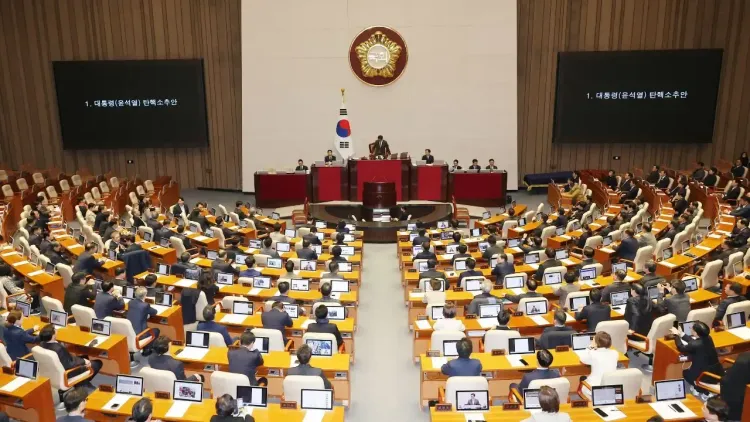
Seoul, Dec 14 (NationPress) The National Assembly took a decisive step on Saturday by voting to impeach President Yoon Suk Yeol due to his unsuccessful attempt to enforce martial law, leading to his suspension from presidential duties until the Constitutional Court determines whether to reinstate him or formally remove him from office, with citizens rejoicing at the news of his impeachment.
The impeachment motion against Yoon was approved with a vote tally of 204-85, including three abstentions and eight invalid votes, after all 300 Assembly members participated in the voting process.
This significant decision came just 11 days after Yoon unexpectedly announced martial law, which sparked nationwide outrage as military personnel surrounded the National Assembly premises in an apparent effort to prevent lawmakers from overturning the decree.
The martial law declaration was revoked within six hours following the Assembly's rejection of it, prompting law enforcement and the Corruption Investigation Office for High-ranking Officials to investigate whether Yoon instigated an insurrection. He is currently prohibited from leaving the country.
In a televised speech from his residence, Yoon stated he is 'pausing momentarily' but remains committed to the path he has taken with the people towards the future.
"I will never give up," he affirmed. "I will welcome all the criticism, encouragement, and support directed at me and strive for the nation until the end."
Yoon was officially suspended from his duties at 7:24 PM, coinciding with the delivery of the impeachment resolution to his office, approximately two and a half hours after the motion was approved.
Prime Minister Han Duck-soo promptly assumed the role of acting president and convened a Cabinet meeting at the government complex in Seoul, as reported by Yonhap news agency.
"The top priority right now is to swiftly stabilize the situation in state affairs and restore the people's daily lives," he stated in his opening remarks, directing all public officials to remain focused, establish robust security measures, and monitor the economy continuously.
In a separate address to the nation, he expressed his sincere apologies for the current circumstances while assuring the government's commitment to mitigating the impact on citizens' daily lives.
He later convened the National Security Council and emphasized the need for maintaining a 'watertight readiness posture' against potential provocations from North Korea.
Just across the river where Han stood, the main opposition Democratic Party (DP) celebrated the outcome, with its leader Lee Jae-myung stating that the motion's approval demonstrated the people's sovereignty and marked the dawn of a new democratic era.
DP floor leader Park Chan-dae told reporters, "We achieved a historic victory for democracy thanks to everyone who gathered in front of the National Assembly and fervently advocated for the protection of the Constitution and democracy."
A two-thirds majority was necessary to pass the motion, with the opposition coalition comprising 192 of the 300 parliament members.
The People Power Party (PPP) opted to participate in the vote shortly before the proceedings while opposing the impeachment. The results indicated that 12 PPP lawmakers likely deviated from their party's stance to support impeachment.
"I take today's outcome very seriously," PPP leader Han remarked to reporters. "As the head of the ruling party, I pledge to rectify the mistakes and uphold the Constitution and democracy alongside the people."
Han, once regarded as a close ally of Yoon, initially suggested the president's 'orderly' departure before changing his position to become a vocal advocate for his impeachment. He intends to continue his role as party leader.
The first attempt to impeach Yoon the previous Saturday failed after nearly all PPP lawmakers abstained from voting.
A second impeachment motion against Yoon was introduced on Thursday by the DP and five other minor opposition parties, accusing him of violating the Constitution and various laws through the declaration of martial law.
This second motion was revised from the initial proposal to eliminate some charges against Yoon while adding new ones, including allegations that he ordered military and police forces to detain lawmakers during the martial law period.
The impeachment resolution has been forwarded to the Constitutional Court, which will make a determination on Yoon's reinstatement or removal from office.
The impeachment trial may take as long as 180 days. If upheld, Yoon would become the second president to be removed from office, following former President Park Geun-hye in 2017, leading to a snap presidential election within 60 days.
Former President Roh Moo-hyun faced impeachment in 2004 but was reinstated.
Hundreds of thousands of individuals gathered near the Assembly and other significant locations nationwide erupted in celebration following the passage of Yoon's impeachment motion.
"From the moment martial law was declared until this very moment, the earnestness, bravery, and commitment displayed by the people for democracy led to this decision," stated National Assembly Speaker Woo Won-shik.


